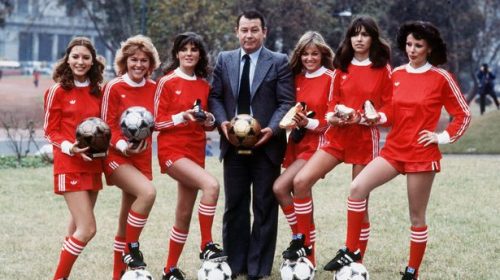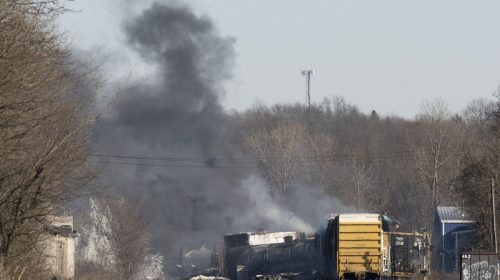President Joe Biden on Wednesday backed the U.S. entering negotiations at the World Trade Organization for the waiver of intellectual property rights as a means to boost vaccine supplies by allowing poorer countries to make their own.
It won’t speed the manufacture of vaccines. It enraged the developers who delivered lifesaving doses in record time. But President Joe Biden’s decision to support waiving intellectual property rights for coronavirus shots had a broader purpose: to broadcast his administration’s commitment to global leadership.
More than a month of internal debate led up to Biden’s decision this week to endorse international calls to strip patent protections for vaccines.
The policy shift, embraced by many charitable service organizations around the world and liberals at home, wasn’t new. Biden endorsed it during his campaign for the White House. But the idea was the subject of pitched discussions inside the administration over how best to bring the pandemic to an end while restoring U.S. influence abroad.
In the best case, officials acknowledge it will take at least a year for any additional vaccines to be produced due to the change. Key European leaders are adamantly opposed to the waivers, and securing the required consensus at the World Trade Organization many never happen.
The specialized production, particularly of the cutting-edge mRNA vaccines made by Pfizer and Moderna, would take even longer. Moreover, the matter could become less pressing if vaccine manufacturers can produce enough to satisfy international demand themselves.
To Biden, White House officials said, that’s largely beside the point, as officials cast the decision as indicative of the president’s efforts to return the U.S. to the position of leadership after four years of unilateralism and protectionism under former President Donald Trump.
“This is a global health crisis, and the extraordinary circumstances of the COVID-19 pandemic call for extraordinary measures,” U.S. Trade Representative Katherine Tai said Wednesday in announcing the move.
The announcement was met with surprise and disappointment by some of Biden’s closest European allies. German Chancellor Angela Merkel quickly weighed in against it, with a government spokesman saying it would cause “severe complications” for the production of vaccines.
The timing of the decision also blindsided the vaccine companies, which had aggressively discouraged the administration from making a choice they feel will hurt American producers.
Officials noted, however, that Tai held more than two dozen meetings with stakeholders, including the drug makers.
Commerce Secretary Gina Raimondo also opposed the plan, but was excluded from the final meeting, two people familiar with the decision-making process but not authorized to speak publicly about private deliberations said on condition of anonymity. Other White House officials highlighted the practical limitations of Biden’s decision, but the symbolism won the day.
Trade groups warned it could curtail future investment in lifesaving drugs, and vaccine manufacturers and some Republican lawmakers warned that it would amount to a giveaway of American technological know-how to China. Vaccine manufacturing historically has not been a huge profit driver for drugmakers.
“The Chinese Communist Party is already celebrating this gift from President Biden,” tweeted Arkansas Sen. Tom Cotton, as he highlighted a comment from a Chinese official praising Biden’s action.
A vaccine manufactured by a Chinese company was given emergency use authorization Friday by the World Health Organization, potentially creating a pathway for millions of the doses to reach needy countries through a U.N.-backed program rolling out coronavirus vaccines.
The decision by a WHO technical advisory group — a first for a Chinese vaccine — opens the possibility that Sinopharm’s offering could be included in the U.N.-backed COVAX program in coming weeks or months and distributed through UNICEF and the WHO’s Americas regional office.
But U.S. vaccine manufacturers also warned that the Biden administration’s move could hurt the global supply of shots in the near to moderate term.
The primary obstacle to vaccine production, they’ve argued, remains production bottlenecks and shortages of the specialized supplies needed to make the shots — a challenge that could become more acute if other countries hoard them in anticipation of trying to make their own doses at home. The Pfizer vaccine, for instance, has more than 200 components, many of which are in demand around the world.
Some in the Biden White House, in addition to noting that the president pledged to do this during the campaign, also believe that it creates a low stakes political victory. They said the decision, which has been applauded by some on the left, is good Democratic politics and that few will be outraged on the behalf of the drug companies, even though those firms have been praised as heroes of the pandemic.
White House aides maintain that Biden’s action is limited to COVID-19 vaccines because of the scale of the pandemic, but some progressives who have pushed to have the government regulate the price of prescription drugs saw an opening.
“Here’s why Pharma’s really really whining about the COVID vaccine patents: the government might finally have the spine to lower drug prices here at home,” tweeted Massachusetts Sen. Elizabeth Warren on Friday. “And it should.”
“President Biden can lower drug prices by producing drugs like insulin, naloxone, and EpiPens at low costs,” she said. “And he doesn’t need Congress to do it — he can use existing compulsory licensing and march-in authorities to bypass patents for public health needs.”
The debate over the inoculations comes as the administration set a new goal to deliver at least one shot to 70% of adult Americans by July Fourth as Biden tackles the vexing problem of winning over the skeptics and those unmotivated to get vaccinated.
Demand for vaccines has dropped off markedly nationwide, with some states leaving more than half their allotment of doses unordered. Already more than 56% of American adults have received at least one dose of a COVID-19 vaccine and nearly 105 million are fully vaccinated. The U.S. is currently administering first doses at a rate of about 965,000 per day — half the rate of three weeks ago, but almost twice as fast as needed to meet Biden’s target.
The Biden administration is examining ways to ensure that a waiver of COVID-19 vaccine patents to aid poor countries will not hand sensitive U.S. biopharmaceutical technology to China and Russia, responding to a chorus of concerns, U.S. and industry officials say.
So far, vaccines have gone overwhelmingly to richer nations, which scooped up contracts for them earlier this year. COVID-19 infection rates in wealthy countries have dropped as vaccination rates increased this year, but infections are still rising in 36 countries, with India’s daily cases skyrocketing to nearly 400,000 a day.
Western pharmaceutical companies, many of which have received government support to develop vaccines, strongly oppose the transfer of intellectual property to make them. They say poorer countries will be slow to set up manufacturing capacity and compete for scarce supplies, hitting production.
Albert Bourla, CEO of Pfizer Inc, said on Friday that the proposed waiver would disrupt progress made so far in boosting vaccine supplies. “It will unleash a scramble for the critical inputs we require in order to make a safe and effective vaccine. Entities with little or no experience in manufacturing vaccines are likely to chase the very raw materials we require to scale our production, putting the safety and security of all at risk.”
Many companies and now some U.S. officials fear the move would allow China to leapfrog years of research and erode the U.S. advantage in biopharmaceuticals.
A senior Biden administration official said that while the priority is saving lives, the United States “would want to examine the effect of a waiver on China and Russia before it went into effect to ensure that it’s fit for purpose.”
A question and answer document produced by the administration and shared with industry representatives also acknowledges concerns that intellectual property sharing could damage the United State’s competitive advantage over China, an industry source familiar with the discussions told Reuters.
The contents of the document read to a Reuters reporter by an industry representative said the Biden administration believes it can address those concerns through the WTO negotiations, but did not specify how. The source added that some agencies in the Biden administration have conflicting views of how to address the concerns in negotiations that are expected to take months.
Spokespersons at the White House and U.S. Trade Representative’s office had no immediate comment on the matter.
Pfizer and Moderna spokespersons did not respond to requests for comment on technology transfer concerns, while a Novavax spokesperson referred Reuters to the company’s statement opposing the waiver on Friday, which said proposals to “weaken intellectual property protections would not achieve equitable vaccine access.”
Enforcing limits on use of the technology could be very difficult, once handed over, some analysts say. Messenger RNA, used in COVID-19 vaccines by leaders Pfizer/BioNTech and Moderna, is a newly developed biotechnology that holds promise for treatments far beyond vaccines.
China and Russia have their own vaccines that do not use this biotechnology.
“It took Pfizer and Moderna years and years of research to develop these vaccines,” said Gary Locke a former U.S. ambassador to China and U.S. Commerce Secretary. “China, Russia, India, South Africa and others want to gain access. Their intention is to get the underlying know-how so they can use it to develop further vaccines,” Locke said.
China’s Fosun Pharma has struck a deal with BioNTech on COVID-19 vaccine product development, which would potentially give it access to some of the technology.
China has high ambitions for its pharma industry and already is developing its own mRNA vaccine.
Patents themselves are publicly accessible, noted James Pooley, intellectual property attorney and former deputy director general of the United Nations’ World Intellectual Property Organization. But trade secrets developed by Pfizer/BioNTech, Moderna and others, “cook books” of manufacturing processes such as temperature and growing conditions, have not been made public. That may ultimately be a dual problem for negotiators. Before they protect the knowledge, U.S. officials would have to ensure access to it.
Those companies would need to be persuaded to come to the bargaining table to give up such trade secrets.
“What happens when it turns out that the U.S. can’t actually deliver the information that is critically important to implementing the inventions?” Pooley asked. “This will be seen as another failure by the U.S. and other rich countries to keep their promises.”




